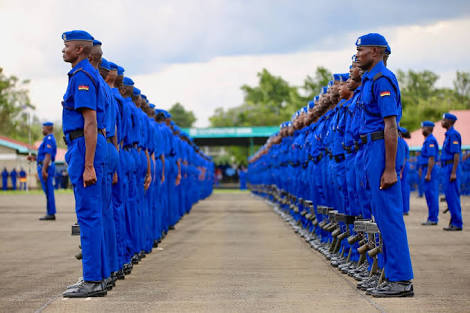By Kinyuru Munuhe
NAIROBI,Kenya, Aug, 24 – A year shy to a decade long efforts of entrenching reforms within the National Police Service (NPS), no doubt the service has uncharacteristically depicted a worrying and mind-numbing image associated with unethical conduct exhibited by some officers in the recent past.
The service reform process marked by the launch of the inaugural Service Standing Orders by the pioneer Inspector General of Police (IG) David Kimaiyo and accelerated by his predecessor Joseph Boinnet, the nation was and has been pregnant with expectation of reforming the national police from a dreaded force to a service.
Indisputably, great milestones have been achieved so far ranging from the Service Standing Orders, police vetting process, reorganisation and change of police structure, establishment and strengthening of the Internal Affairs Unit (IAU) among others.
Now at the helm of the service, IG Hillary Mutyambai is duty bound to firmly and safely sail the ship through the turbulent tides of apparent deep rooted indiscipline, downright rot and budding anarchy within the service.
In the past few months, the country has been treated to skyrocketing appalling incidents that have gone unabated in which police are directly involved in crime, complicity through collusion with organised criminal networks including hiring out their official guns and murder just to mention a few.
These incidences have been reported countrywide and across the ranks pointing to a glaring monster that must be tamed forthwith.
Lately, the country has been treated to callous occurrences where police are cited as perpetrators of such ills, latest being the alleged twin murder of the Kianjakoma brothers in Embu County.
However, no one should be crucified unheard or be subjected to a court of public opinion. The four officers charged in connection with the two unfortunate deaths should also be subjected to the criminal justice system as provided by the law.
Sadly, records by the Independent Policing Oversight Authority (IPOA), a civilian oversight body against police further shows between January to June 2021, out of the received and processed 1,324 complaints, 1051 cases comprised allegations of deaths and serious injuries (deaths in custody 21, death from police action 55, shooting causing injuries 15, enforced disappearance 12, unlawful discharge of firearms 2).
“The remaining 1,219 comprised negligence of duty, abuse of office, physical assault causing injuries, physical assault causing non-serious injuries, harassment, administrative issues, corruption, threats to life, arbitrary arrest, personal matters, malicious prosecution, contempt of court orders, destruction of property, sexual offences, detention of exhibits, refusal to refund cash bail and abusive language.” A report by IPOA shows.
This paints a grim picture of the level of breakdown within the police command structure.
Such cases work against the very key police reforms agenda policy framework of integrating police with communities and neighbourhoods.
Whereas the relationship between civilians and law enforcers is fluid, contradictory and occasionally supportive, more should be done by the police leadership in fostering synergy between mwananchi and police.
However, it is instructive to note that this should not be passed as a blanket condemnation to the entire service, rather, to a few rogue officers running amok coupled by apparent leadership and oversight ineptitude.
This culture should be tamed more so as the country gears up to the upcoming 2022 General election.
Just like as witnessed in the past dispensation when the police were under the command of the Commissioner of Police like retired Mohamed Hussein Ali and Mathew Iteere, the office of the police boss oozes authority and command to effectively instil unparalleled discipline all through across the command structure.
The process of entrenching culture within the service should be seamless right from recruitment, training, deployment and promotion to cultivate sustainable positive change.
Unlike as witnessed by the pioneer teams of both the National Police Service Commission (NPSC) and the Independent Policing Oversight Authority (IPOA) under the leadership of former chairmen Johnston Kavuludi and Macharia Njeru respectively, little involvement, if any, has been seen from the two constitutional commissions during police recruitment process.
The Inspector General and his two deputies are commissioners of the NPSC. Previously, NPSC also co-opted the Director of Criminal Investigations (DCI) as a co-commissioner which currently is not the case.
Whereas NPSC is charged with the primary mandate of police recruitment, promotion and police welfare, the National Police Service guide the commission redeployments due to operational mandate of the service under the command of the Inspector General of Police.
IPOA, a civilian oversight body against the police, the need for enhanced inter-institutional cooperation amongst NPS, NPSC and IPOA while each retains operational independence cannot be gainsaid.
The Service Standing Orders is the Bible for every officer, codifies their conduct in execution of their noble duties and should be jealously guarded.
Kinyuru Munuhe is a Diplomacy and Communications Consultant. He is also a member of the Crime Journalists Association of Kenya-CJAK
kinyurumkinyuru@gmail.com
Twitter: @kinyurumunuhe
Want to send us a story? Contact Shahidi News Tel: +254115512797 (Mobile & WhatsApp)


